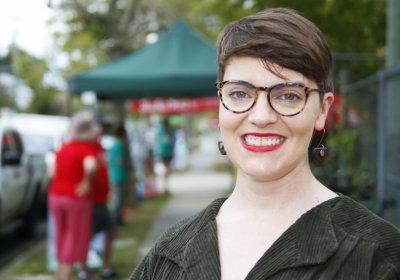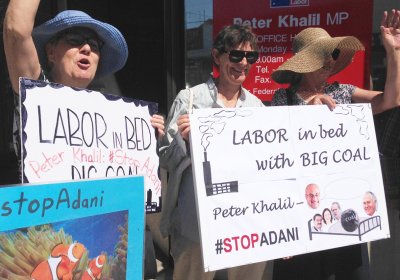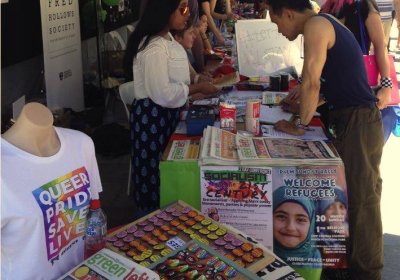The Queensland Greens have laid out a bold vision for the state elections, including free public transport, an energy transition and greater mining royalties. Greens candidate Amy MacMahon talks to Green Left.
Queensland state elections
The Labor government and the Liberal National Party opposition both suffered swings against them in the November 25 Queensland election. Greens on the left and One Nation on the right both increased their vote, but it is not clear that either have won any seats. The final results will be unclear for days.
It is difficult to predict the result of the Queensland election on November 25.
Polls continue to indicate a close result between the major parties with a likelihood that preferences will determine the outcome in many seats. Most likely, whichever party forms government will need the support of independents or minor parties.
The future of Adani’s proposed Carmichael mine in the Galilee Basin has become intertwined with the Queensland state elections called for November 25, with the mega coalmine confronting serious problems in obtaining finance for the project.
Over the past year, Adani has been increasingly unable to secure the $5 billion it needs from private sources, as various financial institutions have begun shifting investments away from coal and towards renewables.
Under pressure from grassroots campaigns, Australia’s Big Four banks have ruled out financing the project.
The Socialist Alliance is running in the November 25 Queensland state elections to help build an anti-capitalist alternative to the two-party system. We are also supporting the re-election of progressive independent MP Rob Pyne in Cairns and calling for a vote for the Greens in other seats.
A potential new battlefield has opened up in the fight against Adani’s proposed mega coalmine for the Galilee Basin in Queensland. To date, the campaign against the coalmine has successfully pressured several companies – including Australia’s Big Four banks – to rule out financing the project.
However, as the board of directors of procurement contractor Downer EDI Mining – which is in the box seat to construct the Adani mine infrastructure – prepared to face shareholders at its November 2 Annual General Meeting, news broke that the company and Adani were in negotiations with Chinese state-owned enterprise China Machinery Engineering Corporation (CMEC) over its possible involvement in financing the project.
Fluctuating poll results indicate that the imminent Queensland election is an open contest between the Annastacia Palaszczuk Labor government and the Liberal National Party (LNP) opposition. Strong campaigns by the Greens and One Nation could also see newcomers into the state parliament from both left and right.
Adani lobbyist and former Queensland Labor Party state secretary Cameron Milner, who played a key role in the 2015 election win of Premier Annastacia Palaszczuk, has returned to Labor headquarters.
First Nations activist Lex Wotton has announced he will contest the state seat of Townsville as an independent in the yet-to-be-announced Queensland election.
Wotton was jailed for two years for his role in the Palm Island riots of 2004.
More recently the Federal Court found that police breached the Racial Discrimination Act after the death of Cameron Doomadgee, but the Queensland Government has appealed the ruling.
It was this appeal that spurred him into action.
The Labor and Liberal National parties hope to slip in four-year fixed parliamentary terms in Queensland through a referendum being held at the same time as state-wide polls for local councils. A four-year term proposal was defeated in 1991.
- Page 1
- Next page











